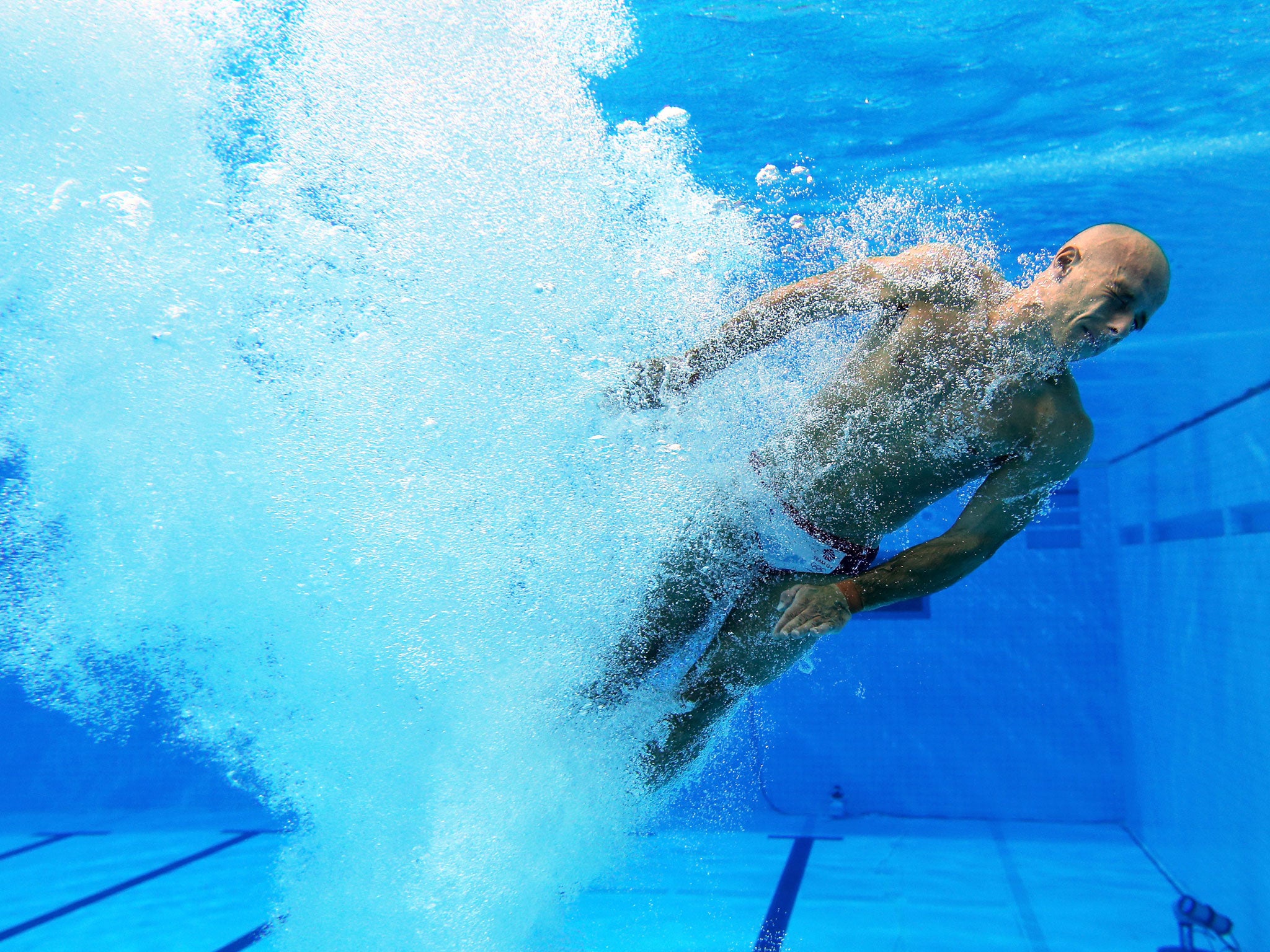Stars of 2012 head for the Olympic job centre
After the gold rush most GB athletes are struggling to make ends meet

Tom Daley ended his mentoring role in the ITV1 diving reality series Splash! last night, tucking a six-figure cheque into his Speedos. For his erstwhile synchro sidekick Pete Waterfield, reality is somewhat different. He is struggling to keep his head above water, having lost his UK Sport funding.
A month shy of his 32nd birthday Waterfield, veteran of four Olympics and a silver medallist in 2004, says he can no longer afford to stay in the sport. "I have to pay a mortgage, two kids to feed as well as a car to run," he said. "Without the funding I can't do any of that. The only way I can carry on diving after 20 years in the sport is if I find funding from another source. Otherwise I'll be looking for another job."
He is not alone. For so many who took part in London 2012 the only real legacy is a daily visit to the job centre. No pots of gold for them. Which is why some 150 Olympians and Paralympians thronged Reading's Madejski Stadium last month, trying to find out if there is a working life after sport at an inaugural Athlete Career Fair, set up for those who wish to keep competing as well as the ones who have retired.
The fair, a joint initiative by the British Olympic Association, the British Paralympic Association, UK Sport, the English Institute of Sport and the Dame Kelly Holmes Legacy Trust, is a continuation of the EIS Performance Lifestyle programme, which has been running since 2004 to help athletes find work after retiring from sport. Over the past four-year cycle, nearly 100 athletes have been offered part-time placements or internships with companies such as O2, Cadbury and InterContinental Hotels Group.
Bringing together athletes and prospective employers was Georgina Harland, a modern pentathlon bronze medallist and now a sports engagement manager for the BOA. "It resonates with what I experienced as an athlete when I went through the same transition stage," she said. "For the majority of athletes, when the funding stops and you step into the big wide world, it is a daunting prospect. So far the feedback has been very positive, lots of interviews have been arranged – but no job offers as yet. These things take time."
Team GB volleyball player Andy Pink has been lucky, starting a job with PR company Brazil after searching since October. "It's tough to get your foot in the door in the current economic climate," he said. "I stopped keeping count after 20 interviews. It's good to have an Olympics in your CV, but when you turn up all they want to talk about is the Olympic Games."
The American-born Pink, who has played volleyball since he was 16, has now retired at 30 with the future of the sport uncertain because of the recent funding cuts. "I'd had enough of living out of a suitcase and getting paid next to nothing," he admitted. "I could have made more money driving a minicab around London. Most of us went into debt every time we played for the national team."
His female GB colleague Rachel Laybourne, also 30, knows all about debt; she still has to pay off around £10,000. Since London she can no longer afford to play her sport at elite level even though she has finally landed a job in an Essex school teaching volleyball, a role she got through "a friend of a friend of a friend".
"But I'm financially crippled, I haven't paid off a penny yet," she said. "When I got my first pay packet and paid for my accommodation and food I didn't have anything left. Every member of our team was in debt, constantly borrowing money. I was absolutely staggered by the number of athletes at the careers fair. I didn't realise so many were out of work and I was very thankful I had a job.
"I know of one guy in the men's team, Kieran O'Malley, who's written dozens of letters and has been in and out of job centres every day since the Games. He's not got any further than a second interview."
The EIS scheme helped Ben Hawes, 32, a former GB Olympic hockey captain, to get a job in marketing with the hotel group IHG, but he said: "A massive number of those who competed in 2012 are struggling to find work. I speak to guys in the hockey team regularly who are up against it. It's probably only one per cent of Olympians who can make a living on the back of the Games; even some guys with medals can find it difficult when you've been put on a pedestal and suddenly you are back in the real world. There has to be a big swallowing of pride to start at the bottom of a career ladder."
Will Waterfield be able to climb the ladder to the high board again? For him, pride comes before a dive: "I'll never go on the dole, no way. I'm a fighter. I'll find a way to survive."
Subscribe to Independent Premium to bookmark this article
Want to bookmark your favourite articles and stories to read or reference later? Start your Independent Premium subscription today.

Join our commenting forum
Join thought-provoking conversations, follow other Independent readers and see their replies